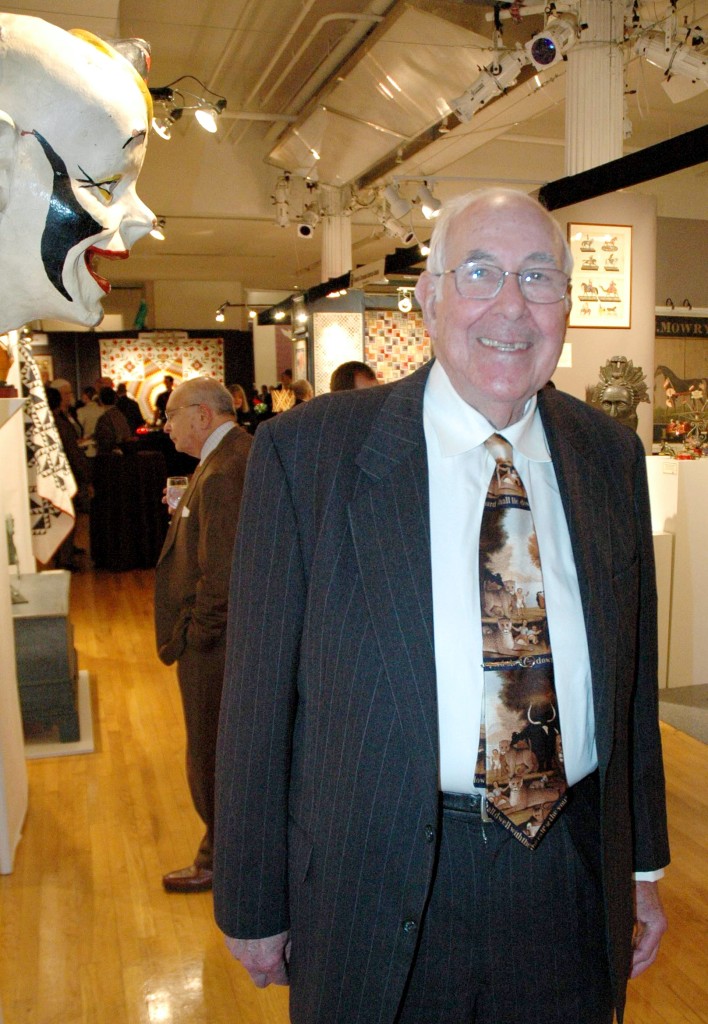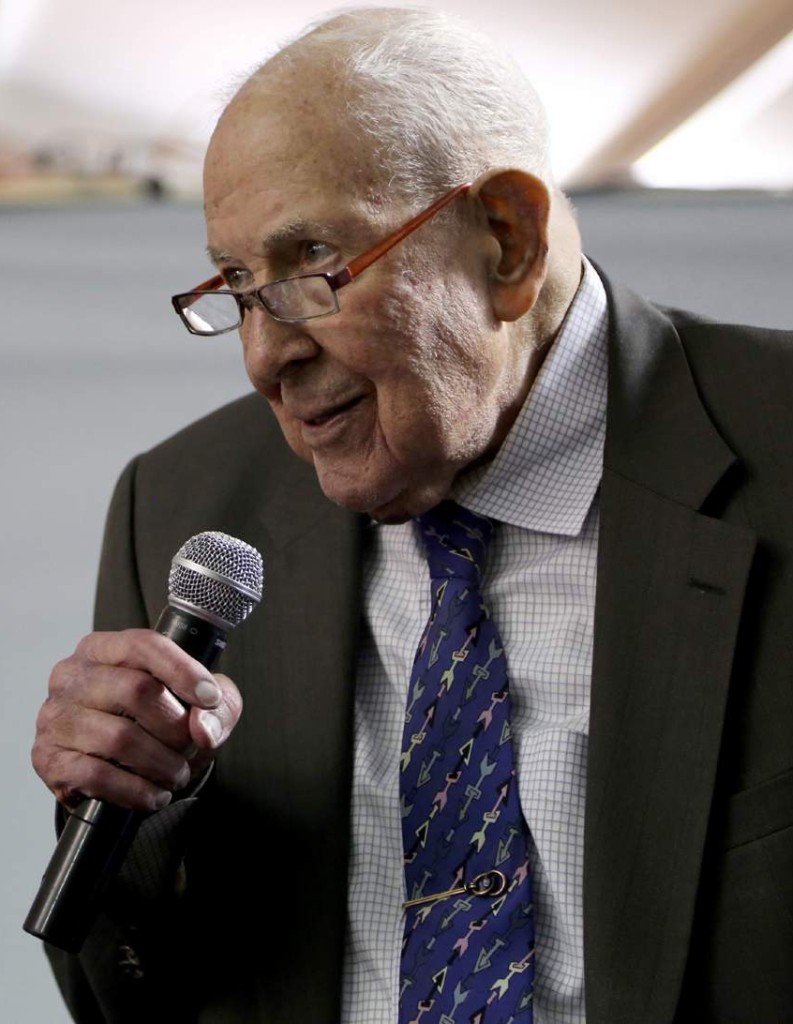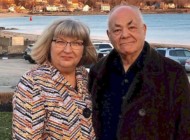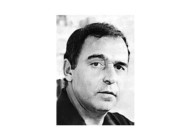By Laura Beach
PHILADELPHIA, PENN. – We think of Victor L. Johnson, who died Saturday, September 2, at 89, as a force in the world of art and antiques. He was much more, as tributes to the late entrepreneur, business leader and philanthropist make clear.
Following in the footsteps of Edwin Atlee Barber, Titus C. Geesey, J. Stogdell Stokes and others, Johnson and his wife, Joan, who survives him, assembled a redoubtable collection of American folk art, much of it of Pennsylvania interest. The native Philadelphians celebrated their fiftieth wedding anniversary in 2005 by endowing a gallery of Pennsylvania German and other rural Pennsylvania decorative arts at the Philadelphia Museum of Art, where Joan has been a trustee since 1993. They have also promised their unsurpassed fraktur collection to the museum.
Johnson was, as his daughter Linda movingly described him at a memorial service on September 6, a towering figure. In full health, he stood 6’4”, his robust stature complementing that of his regally elegant wife. His “incomparable joie de vivre,” as Linda put it, found expression in lively stories, good jokes, and fine French food, wine and travel. A man of many parts, he was partial to Bassett’s rum raisin ice cream, fly fishing and the Philadelphia Eagles. Johnson excelled at backgammon, bridge and, until his recent infirmity, tennis. His droll wit served him to the end.

Victor wearing a “Peaceable Kingdom” tie at the American Antiques Show in New York City. The Johnsons have owned more than one example of the pinnacle work by Edward Hicks.
“He was deliberate, strategic and idiosyncratic. He measured everything with great precision, but took into account relative values… We learned early in life that being good at what you choose is important,” said Linda, president and CEO of Brooklyn Public Library since 2011.
Educated at Phillips Exeter Academy and Haverford College, where he studied economics, Johnson earned a master’s degree in business administration from the Wharton School at the University of Pennsylvania. After serving in the Army Corps of Engineers during the Korean War, he briefly headed Montague Rod & Reel Co. He founded Johnson Computing Co., now JCI Data Processing Inc., in 1958, later selling and reacquiring the firm from the bank he worked for in the interim.
“His first language was numbers,” said Linda. “It suited his temperament, his interest and his intellect. I hesitate to use the word ‘visionary’ ever, but our father knew when he was 17 that he wanted to be an engineer and to work in an emerging field called computing …”.
Philanthropy was a natural adjunct to his professional life. Of the many causes he championed, none was dearer to him than Einstein Healthcare Network. Like his father before him, he served as chairman of the organization’s board of trustees, assuming the position, which he pursued with vigor and a commensurate emphasis on excellence and innovation, in 1987. Einstein dedicated the Victor L. and Joan M. Johnson Chair of Information Technology in 2015.
Victor and Joan began collecting Americana soon after they married in 1955. Linda and her sister, Sally Johnson Wilson, spent most of their childhood years in the picturesque enclave of Hidden Glen, in a 1937 stone farmhouse designed by G. Edwin Brumbaugh (1890-1983). Joan brought a designer’s eye and a passion for the arts to this marriage of equals. Victor excelled at deal making and did most of their bidding at auction, usually by phone. The Johnsons developed deep friendships with other collectors, whom they knew from the American Folk Art Museum, the American Folk Art Society, the Philadelphia Antiques Show and the Philadelphia Museum of Art, as well as with dealers and curators.
After 43 years at Hidden Glen, the Johnsons in 2007 moved to an apartment in Center City, Philadelphia. “To watch him zip around town on his red scooter, and listen to him wax on about the merits of their new city life, you would have thought the move was his idea, and that he created the concept of urban living,” Linda said.
Readers of this publication will remember Victor Johnson for his generosity to the field of American decorative arts, contributions honored by the Antiques Dealers Association of America, which presented its Award of Merit to the couple in 2016. The prize followed by a year “Drawn With Spirit: Pennsylvania German Fraktur From The Joan And Victor Johnson Collection” at the Philadelphia Museum of Art. Accompanying the show was the first major publication on the subject in decades.
Linda Johnson said her father shared Benjamin Franklin’s view of death as a benevolent release of the spirit from a body too compromised to continue. She added, “But we, his family, felt fortunate for every minute we were able to spend with him on this earth,” a sentiment widely shared.
Contributions may be made to the Einstein Healthcare Network, 5501 Old York Road, Philadelphia, Penn., 19141.





